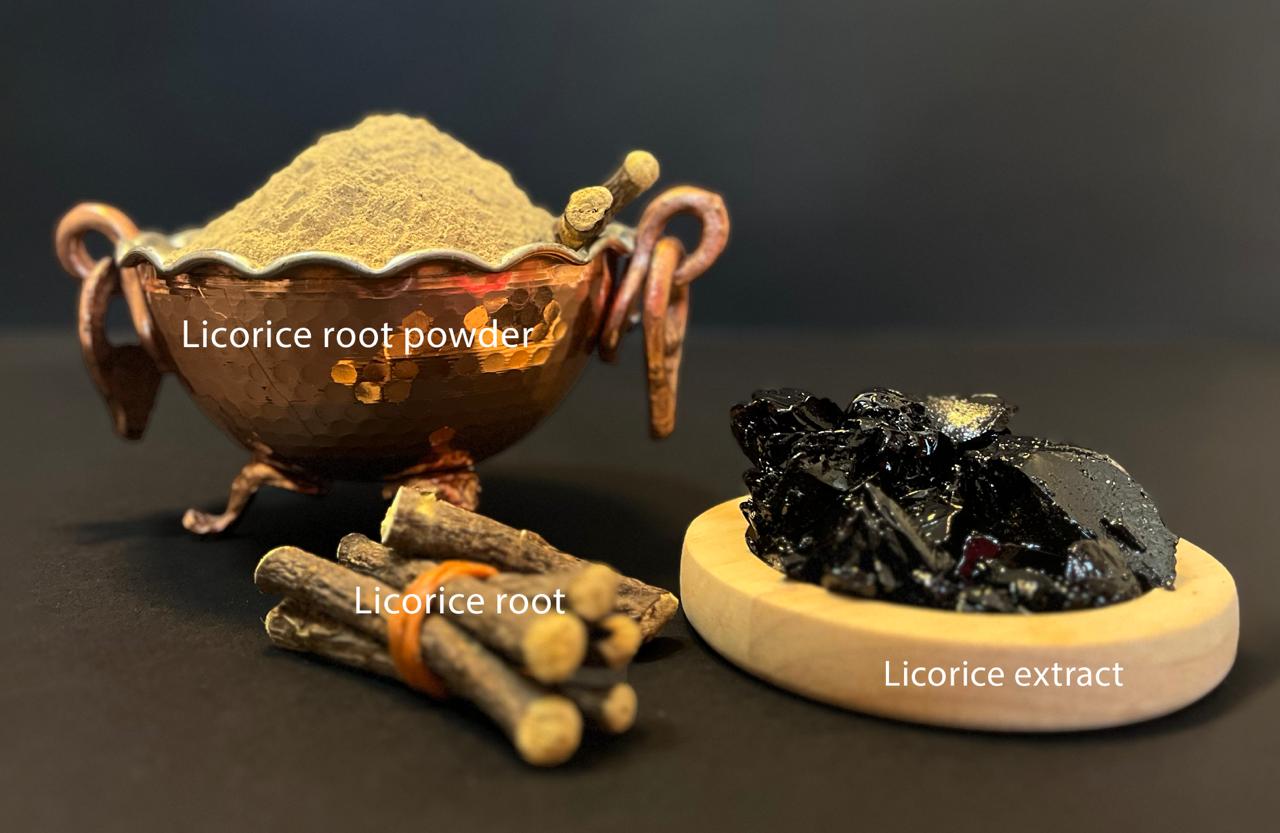
Licorice (Glycyrrhiza glabra), a plant native to the mountainous regions of Iran, is recognized as one of the world’s most valuable medicinal herbs. With its brown-colored roots, licorice is rich in bioactive compounds such as glycyrrhizin, flavonoids, and antioxidants. These compounds not only impart a naturally sweet and pleasant flavor but also contribute to a wide range of valuable health benefits.
Thanks to its powerful components, licorice is considered a natural, multifunctional remedy utilized in both traditional medicine and modern industries.
Why Choose Iranian Licorice?
1. High Glycyrrhizin Content:
Iranian licorice root contains some of the highest natural concentrations of glycyrrhizin globally – the key compound responsible for its sweetness and its anti-inflammatory, antiviral, and antacid effects.
2. Harvested from Pristine Environments:
Iranian licorice thrives in unspoiled, high-altitude regions with rich, uncontaminated soils, and is typically harvested without the use of chemical fertilizers or pesticides. This makes it an excellent choice for pharmaceutical and food manufacturers seeking clean, natural ingredients.
3. Available in Multiple Forms:
Licorice from Iran is exported in various forms, including:
• Whole Root
• Cut & Sifted Root
• Root Powder
• Extract Paste
Health Benefits of Licorice
Licorice is more than just a flavorful plant—its roots offer numerous scientifically recognized health benefits:
1. Supports Digestive Health:
Due to its anti-inflammatory properties and protective effects on the stomach lining, licorice may help manage ulcers, heartburn, and acid reflux.
2. Boosts Immune Function:
The antioxidants in licorice help neutralize free radicals and support the body’s immune response.
3. Promotes Skin Health:
Licorice extract is widely used in cosmetics for its skin-brightening and anti-inflammatory effects, assisting in the reduction of dark spots and the management of acne and eczema.
4. Supports Respiratory Health:
Licorice acts as an expectorant and may help relieve coughs, sore throats, and cold symptoms.
5. Helps Regulate Hormones and Manage Stress:
Licorice may contribute to balancing cortisol levels (the body’s stress hormone), supporting energy, and overall well-being.
6. Offers Antimicrobial Properties:
Licorice contains natural antimicrobial compounds that help fight bacteria and viruses and support oral health.
Uses of Licorice across Industries
• Pharmaceutical:
Treatment of cough, sore throat, and gastric ulcers; a natural anti-inflammatory and antiviral agent, used in supplements and herbal remedies.
• Food:
Natural sweetener in chocolates, candies, and herbal beverages; added to teas and wellness infusions.
• Cosmetics & Personal Care:
Skin brightener and spot corrector in face masks; a popular ingredient in skincare and personal care formulations.
How to Use Licorice
Licorice is available in many convenient forms and can be easily incorporated into daily life:
• Herbal Tea: One cup a day may provide relaxation and digestive support.
• Extracts & Supplements: Available in capsule or liquid form for targeted health needs.
• Skincare Products: Creams and lotions featuring licorice extract are commonly used for skin care.
• Root or Powder: Chewing licorice root or adding its powder to foods and beverages is a traditional and effective method.
Note: Excessive consumption of licorice may cause side effects such as increased blood pressure due to its glycyrrhizin content. Please consult a healthcare professional before use.
For further information and collaboration inquiries, please contact us.
written by: Sara Ebrahimi
















